Anway Bose
A Generalized Framework for Autonomous Calibration of Wheeled Mobile Robots
Jan 06, 2020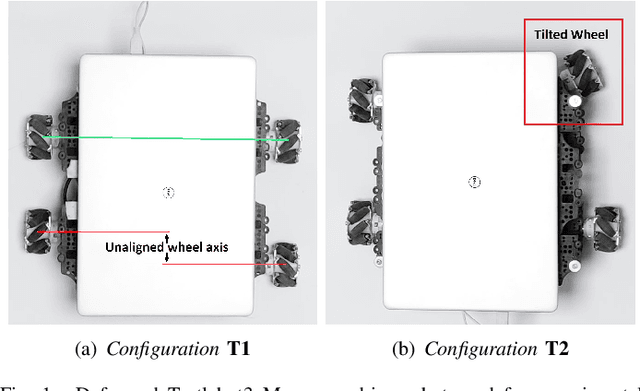
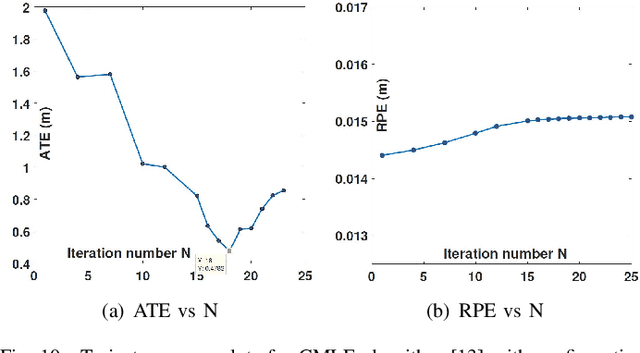
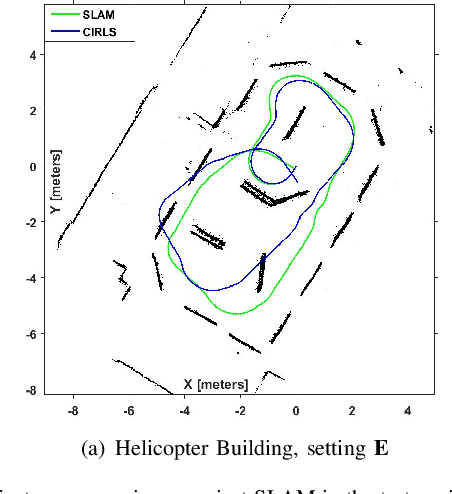
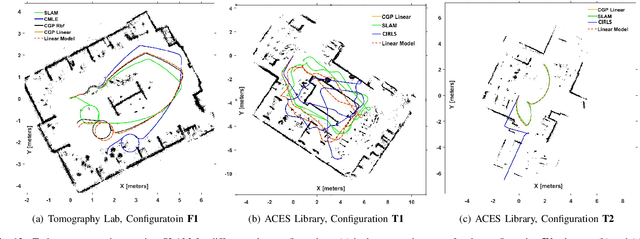
Abstract:Robotic calibration allows for the fusion of data from multiple sensors such as odometers, cameras, etc., by providing appropriate transformational relationships between the corresponding reference frames. For wheeled robots equipped with exteroceptive sensors, calibration entails learning the motion model of the sensor or the robot in terms of the odometric data, and must generally be performed prior to performing tasks such as simultaneous localization and mapping (SLAM). Within this context, the current trend is to carry out simultaneous calibration of odometry and sensor without the use of any additional hardware. Building upon the existing simultaneous calibration algorithms, we put forth a generalized calibration framework that can not only handle robots operating in 2D with arbitrary or unknown motion models but also handle outliers in an automated manner. We first propose an algorithm based on the alternating minimization framework applicable to two-wheel differential drive. Subsequently, for arbitrary but known drive configurations we put forth an iteratively re-weighted least squares methodology leveraging an intelligent weighing scheme. Different from the existing works, these proposed algorithms require no manual intervention and seamlessly handle outliers that arise due to both systematic and non-systematic errors. Finally, we put forward a novel Gaussian Process-based non-parametric approach for calibrating wheeled robots with arbitrary or unknown drive configurations. Detailed experiments are performed to demonstrate the accuracy, usefulness, and flexibility of the proposed algorithms.
Model Free Calibration of Wheeled Robots Using Gaussian Process
Oct 25, 2019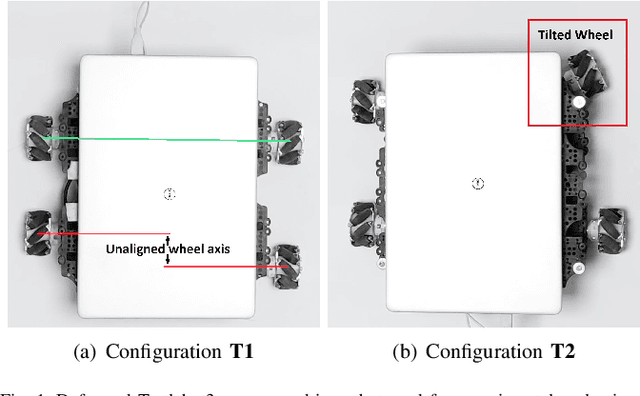
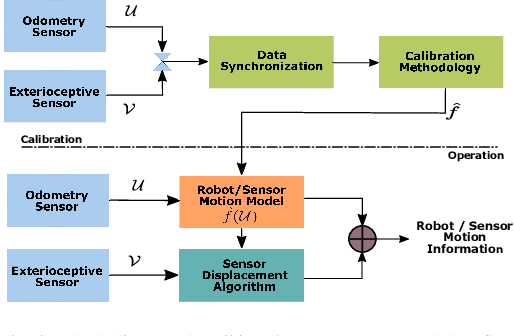
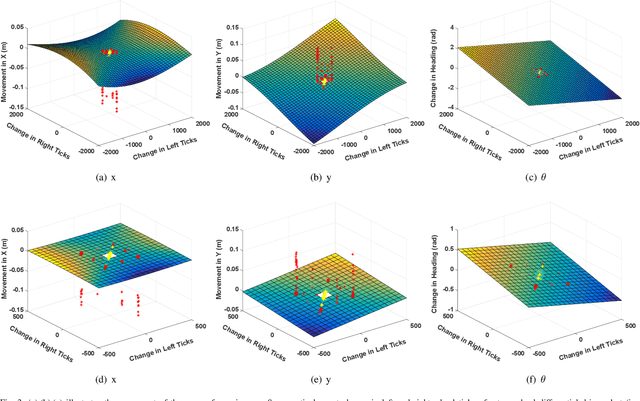
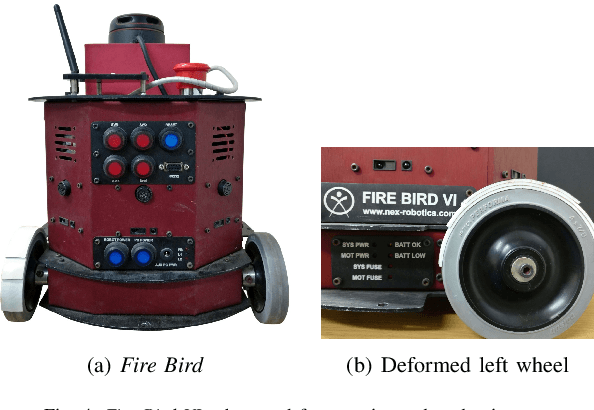
Abstract:Robotic calibration allows for the fusion of data from multiple sensors such as odometers, cameras, etc., by providing appropriate relationships between the corresponding reference frames. For wheeled robots equipped with camera/lidar along with wheel encoders, calibration entails learning the motion model of the sensor or the robot in terms of the data from the encoders and generally carried out before performing tasks such as simultaneous localization and mapping (SLAM). This work puts forward a novel Gaussian Process-based non-parametric approach for calibrating wheeled robots with arbitrary or unknown drive configurations. The procedure is more general as it learns the entire sensor/robot motion model in terms of odometry measurements. Different from existing non-parametric approaches, our method relies on measurements from the onboard sensors and hence does not require the ground truth information from external motion capture systems. Alternatively, we propose a computationally efficient approach that relies on the linear approximation of the sensor motion model. Finally, we perform experiments to calibrate robots with un-modelled effects to demonstrate the accuracy, usefulness, and flexibility of the proposed approach.
 Add to Chrome
Add to Chrome Add to Firefox
Add to Firefox Add to Edge
Add to Edge